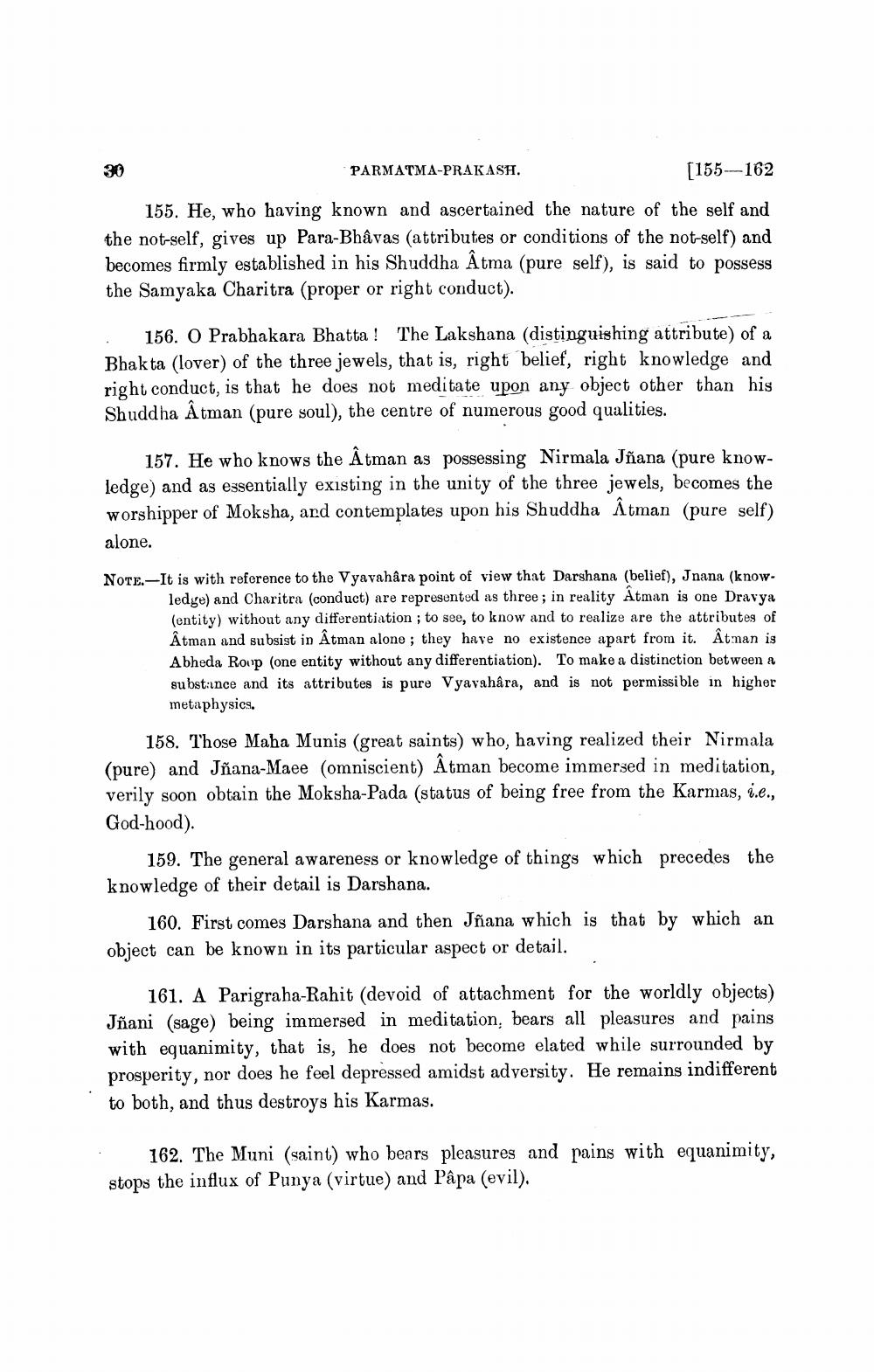________________
30
PARMATMA-PRAKASH.
[155-162
155. He, who having known and ascertained the nature of the self and the not-self, gives up Para-Bhâvas (attributes or conditions of the not-self) and becomes firmly established in his Shuddha Âtma (pure self), is said to possess the Samyaka Charitra (proper or right conduct).
156. O Prabhakara Bhatta! The Lakshana (distinguishing attribute) of a Bhakta (lover) of the three jewels, that is, right belief, right knowledge and right conduct, is that he does not meditate upon any object other than his Shuddha Atman (pure soul), the centre of numerous good qualities.
157. He who knows the Atman as possessing Nirmala Jñana (pure knowledge) and as essentially existing in the unity of the three jewels, becomes the worshipper of Moksha, and contemplates upon his Shuddha Atman (pure self)
alone.
NOTE. It is with reference to the Vyavahâra point of view that Darshana (belief), Jnana (knowledge) and Charitra (conduct) are represented as three; in reality Atman is one Dravya (entity) without any differentiation; to see, to know and to realize are the attributes of Âtman and subsist in Âtman alone; they have no existence apart from it. Âtman is Abheda Roop (one entity without any differentiation). To make a distinction between a substance and its attributes is pure Vyavahâra, and is not permissible in higher metaphysics.
158. Those Maha Munis (great saints) who, having realized their Nirmala (pure) and Jñana-Maee (omniscient) Atman become immersed in meditation, verily soon obtain the Moksha-Pada (status of being free from the Karmas, i.e., God-hood).
159. The general awareness or knowledge of things which precedes the knowledge of their detail is Darshana.
160. First comes Darshana and then Jñana which is that by which an object can be known in its particular aspect or detail.
161. A Parigraha-Rahit (devoid of attachment for the worldly objects) Jñani (sage) being immersed in meditation, bears all pleasures and pains with equanimity, that is, he does not become elated while surrounded by prosperity, nor does he feel depressed amidst adversity. He remains indifferent to both, and thus destroys his Karmas.
162. The Muni (saint) who bears pleasures and pains with equanimity, stops the influx of Punya (virtue) and Pâpa (evil).




